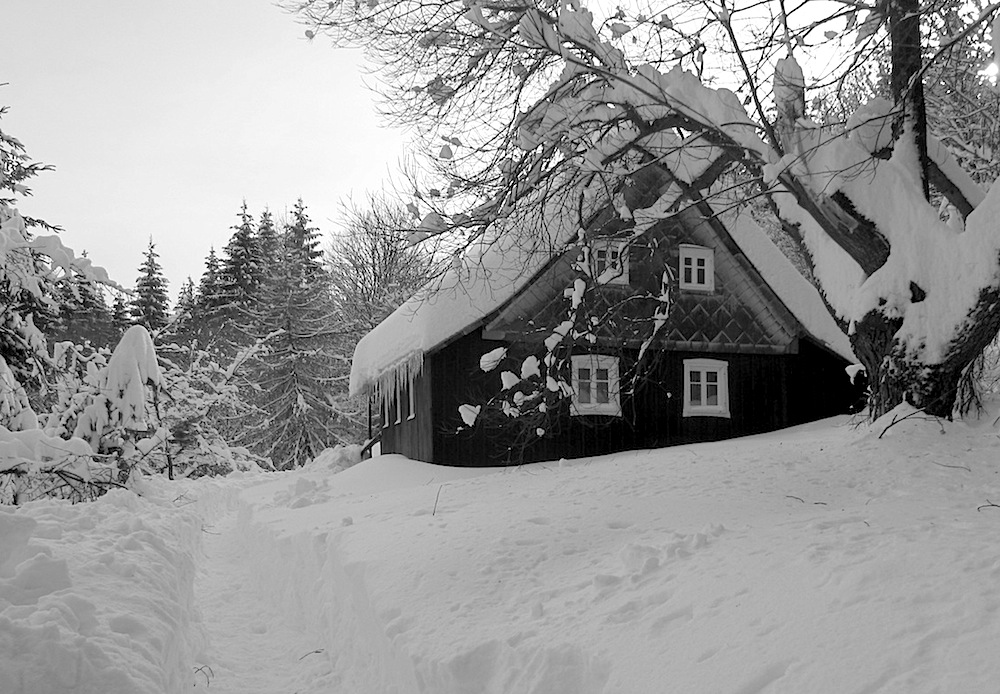Not very many people live in the village of Horni Maxov (Upper Maxov) in the winter — at last count, the Czech census gave 138 permanent residents. The mail comes to the church, and to buy bread here, you have to either drive or ski a few kilometers to the bakery in the neighbouring village in the valley.
Maxov itself consists mostly of small wooden houses with steep roofs spread out over the hillside under the church. You can easily see why not everyone would choose to live here permanently — most of the houses are heated by wood, and the winter brings lots of snow shoveling. If you go a bit further north, the land opens up into passes of ancient hills — you climb the ridge and you can see the landscape turn into a sea of white spruce below you.
